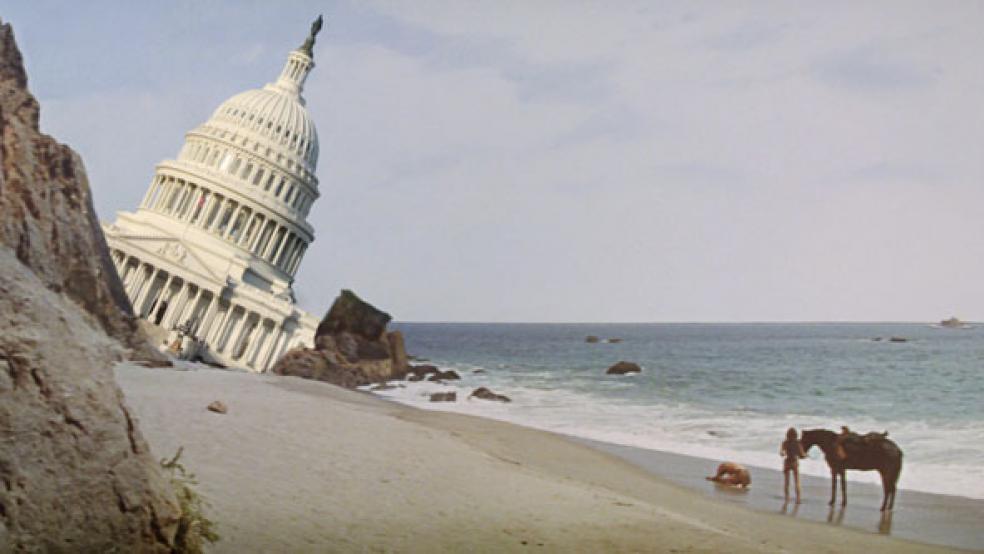What is it?
The “fiscal cliff” is what Federal Reserve Board Chairman Ben Bernanke has called the many major fiscal events that could happen simultaneously at the close of 2012 and the dawning of 2013. The events include the expiration of the Bush era tax cuts, the payroll tax cut and other important tax-relief provisions. They also include the first installment of the $1.2 trillion across-the-board cuts of domestic and defense programs required under last summer’s bipartisan deficit reduction agreement. At the same time, lawmakers may have to raise the debt ceiling once again, potentially triggering another standoff in Congress.
What happens if we fall off the fiscal cliff?
If all these tax increases and spending cuts take effect, the government could save nearly $600 billion starting next year, but the impact on the economy would likely mean a new recession, according to the Congressional Budget Office.

Democrats tend to be concerned about abrupt and austere deficit reduction based on the theory that government spending helps to stimulate the economy. Republicans are more enthusiastic about deficit reduction, but mainly by cutting or slowing the rate of growth of domestic programs and entitlements. They oppose cuts in defense spending and support extending the Bush-era tax cuts for all Americans, including the wealthiest.
Bernanke has also expressed concern that so much fiscal tightening at once will slow the economy further from an already anemic growth rate. The Congressional Budget Office estimates that reducing the deficit so quickly will reduce growth next year from 4.4 percent to just 0.5 percent.
What is Congress doing about it?
Few political analysts believe Congress and the White House will reach an early accommodation on the path needed to avoid the fiscal cliff, which would be a moderation in the spending cuts and enacting broad-based tax reform. Sen. Patty Murray of Washington State and other senior Democrats say they are prepared to weather a fiscal crisis at year’s end unless Republicans drop their opposition to higher taxes for individuals with incomes over $200,000 a year and households with incomes above $250,000 annually. The most likely scenario is postponing consideration of the measures until after the election, which means another nearly five months of economic uncertainty and sluggish growth.




